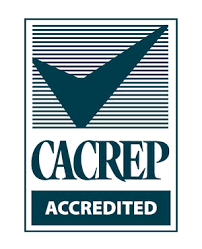Clinical Mental Health Counseling, MS
Program Overview
Clinical mental health counselors provide services to clients who seek help with everyday life concerns as well as those who struggle with significant emotional, cognitive, and behavioral challenges. To help these clients achieve optimal well-being, Clinical mental health counselors utilize individual, couple, family, and group counseling. These services are provided across many settings, including private practice, mental health agencies, college counseling centers, churches, hospitals, cancer treatment centers, and substance abuse and eating disorder treatment centers.
The Clinical Mental Health program prepares professional counselors to provide evidence-based, culturally, and developmentally competent counseling services that enhance the emotional, cognitive, behavioral, relational, and spiritual well-being of individuals, couples, families, and groups across the lifespan. Graduates of this program are prepared to counsel a wide variety of clients varying from those who seek help with everyday life concerns to those who struggle with significant emotional, cognitive, and behavioral challenges. The importance of advocacy, leadership, social justice, client empowerment, and wellness are emphasized throughout the program.
What is a Clinical Mental Health Counselor?
A clinical mental health (CMH) counselor is a clinically trained, master’s level professional counselor who can work in a wide range of settings and with a diverse range of clients and presenting concerns. CMH counselors work with children, adolescents, and adults in mental health and/or substance/addictive focused settings. Presenting concerns that CMH work with include behavioral, addictive, mood, anxiety, relationship, eating, cognitive, psychotic, and personality concerns. CMH counseling is the broadest counseling specialty, and typically CMH counselors choose one or more foci for their clinical work.
Where Can I Work With This Master's Degree?
Clinical mental health counselors work in a wide range of locations and settings. Some common settings for counselors include:
- Inpatient hospitals
- Inpatient substance/addictive treatment facilities
- Private practices
- Community agencies
- School-based mental health or behavioral health settings
- Family-based programs
- College campuses
- Veteran Affairs
- Employment Assistance Programs (EAPs)
- Prevention or educational settings
- Clinical supervisor
- Counseling administrator
How Can This Degree Help Me as a Professional Counselor?
This program is intended to help people enter the program as students and graduate as clinical mental health (CMH) counselors. The program is designed to provide students with a solid foundation in counseling so that they can work in a variety of different settings. The faculty work to help students to develop their professional identity as a professional counselor. Faculty encourage students to find their way to make a difference in the lives of their clients by finding their own professional niche within the counseling profession. Graduates are prepared for clinical work through the knowledge, experiences, and connections gained throughout their work in the program. Also, our master’s of science degree meets the educational requirements for licensure in the state of Pennsylvania. By completing the program, passing a licensure test, and completing post-master’s clinical hours, our graduates are eligible for licensure as a Licensed Professional Counselor (LPC).








